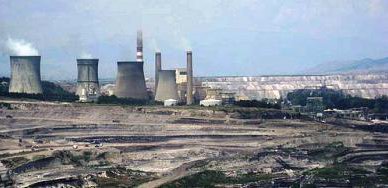Greece remains among the countries still considerably dependent on solid fuels, specifically lignite, an OECD (Organisation for Economic Cooperation and Development) report on Greece has noted in its section concerning the energy sector.
Greece continues to support the development of lignite-fired power stations while other countries are moving in an entirely different direction, the OECD report explained.
A swifter transition to renewable energy reliance can only be achieved if support measures for fossil fuels are gradually faded out, according to the report. This would also facilitate the implementation of a new EU directive detailing an emissions trading system.
The local renewable energy sector’s penetration of the Greek energy market has now reached a level of close to 15 percent, nearing the EU-28’s average, the OECD reported pointed out.
Solar energy per capita levels in Greece are among the world’s five highest, the reported pointed out.
Greenhouse gas emissions in Greece have dropped significantly in recent years and are now well below the OECD average, the report noted. The extended recession’s resulting reduction of industrial output and transportation needs were listed as main reasons for the country’s lower CO2 emission levels.
Greece is one of the few countries to have experienced an increase in environment-related tax revenues as a percentage of GDP over the past decade, the report noted in a chapter covering fuel taxes.





